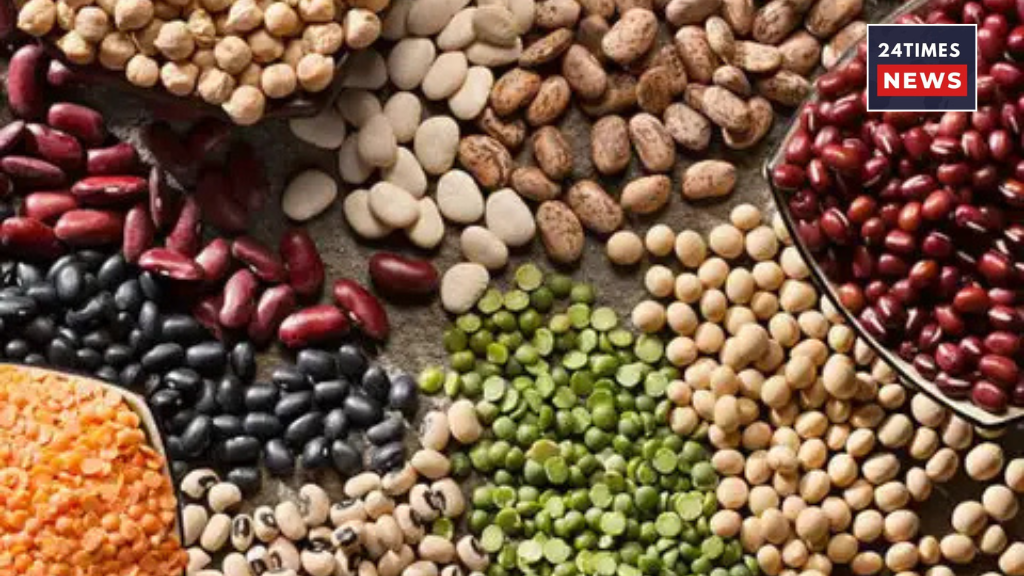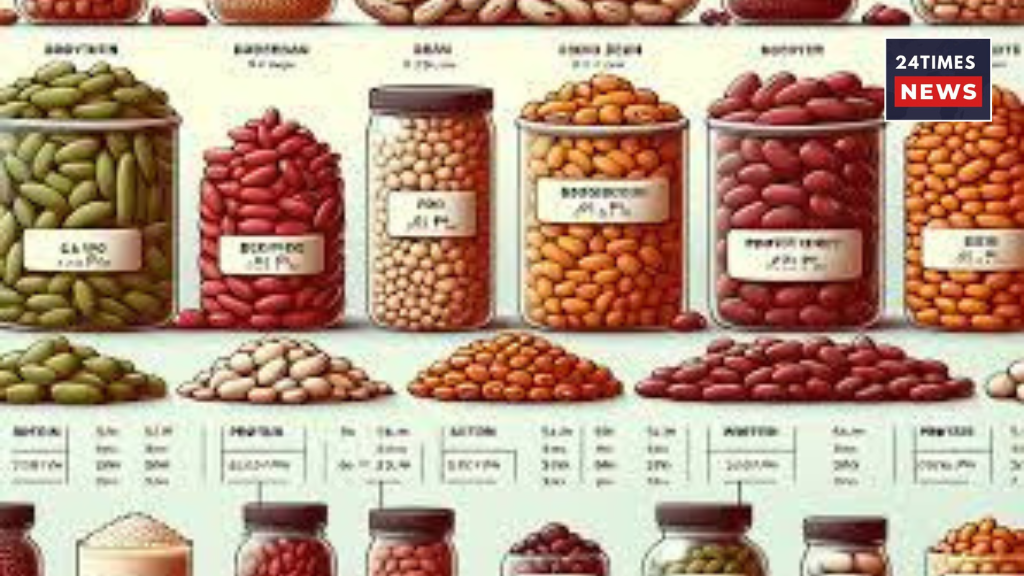protein beans
Beans have been used in Indian cooking for millennia. Not only are they wonderful to eat, but they are also a health treasure.
Rich in vital minerals such as iron, magnesium, potassium, fiber, protein, and many more, these little beans shield us from a variety of illnesses. Every bean, whether it’s mung, chickpeas, or rajma, strengthens the body from the inside out.

We shall thus discuss the advantages of consuming beans in your diet today. In addition, we shall discover:
- certain beans have certain nutrients?
- What safety measures need to be followed before consuming beans?
To create complete proteins, people might mix incomplete proteins with grains, dairy products, nuts, or seeds at one meal or throughout the day.
Folate
One of the essential minerals found in beans is folate. Folate is necessary for the production of healthy red blood cells, for general health, and for preventing neural tube problems in a developing fetus.
Shelled edamame beans are a great source of folate, containing 311 micrograms (mcg) per 100 g meal.

Antioxidants
Studies have shown that beans contain a lot of polyphenols, which are antioxidants.
Antioxidants counteract the effects ofReliable Source of Free Radicals: The body creates these harmful molecules during metabolism and other processes.
Numerous diseases can arise from cell damage caused by free radicals. The body eliminates free radicals with the aid of antioxidants. Foods high in antioxidants, like beans, can thus aid in preventing illness.
Heart health
Regular bean consumption can help avoid cardiovascular disease (Trusted Source). This could be as a result of the fact that beans can be used in place of higher-fat meat proteins. They may also be influenced by their high fiber content.
A 2023 investigationLegumes and the risk of cardiovascular disease were examined by Trusted Source. Increased consumption of legumes was associated with a decreased risk of heart disease and cardiovascular disease, but not stroke. The greatest advantages appeared to be obtained with 400 g of beans each week.
Nutrients in beans may help decrease cholesterol, according to other research. An increased risk of heart disease and heart attacks is associated with high cholesterol.





